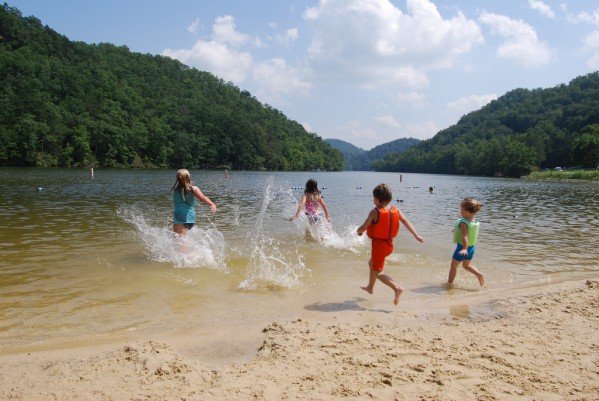Children are never too young for their first camping trip, and you’re never too old to take a child camping. If you happen to be an old hand at camping, this is preaching to the choir. But if you’re a novice, and not really sure about camping out, read on.
Camping doesn’t have to be a huge undertaking. Don’t let your own inexperience stop you from sharing an adventure with your children that they’ll always remember – as you will.
First of all, where will you go?
That’s easy; beginners should try a developed campground – safe, clean, fresh water and sanitary facilities. You’ll pay a modest fee for your own camping spot – picnic table, fire pit and grill usually provided. Often campgrounds have a caretaker who can help you out and answer questions.
How do you find one?
Go to the website for the nearest national forest. Or try Recreation.gov. There are also private web sites to help you. It’s a good idea to make a reservation so you’ll be sure of a spot.
How long should you camp? One or two nights for starters, a weekend is good.
What do I need to take?
Keep it simple and don’t spend a fortune right off the bat. The basics include a simple tent, inexpensive sleeping bags, inflatable mattress, folding chairs, ice chest, flashlights or a lantern, and a water container. You can use things you already have at home, rather than buying new. Make a list of everything you might want – matches, sunscreen, insect repellant, rain tarp, can opener, etc.
What about food and cooking?
You can prepare food at home and bring it, or buy something that doesn’t require a lot of preparation. Most people find outdoor cooking part of the fun, but keep it single – hot dogs are an all American favorite and sure kid pleasers. Paper plates and plastic silverware reduce hassle. Don’t forget the marshmallows for toasting on the campfire (cut your own stick and hold them over the coals, not the flame).
Will it be Safe?
Developed campgrounds are safe and there will be other people around. Many are near water, so watch small children. Don’t worry about wild animals, seeing them is part of the fun. But don’t feed animals or leave food out. If there really is an issue, like bears in some areas, you will be warned about it. Use common sense on hikes and while exploring the forest, and set rules for children on how far they can go from camp. Take bandages and ointments in case of minor scrapes, and perhaps something to relieve a bug bite or sting.
What will you do in camp?
You don’t have to do anything. Some people just like to sit around and relax, maybe read a book. Kids want to be active, but they can bring toys, depending on their age. Hiking and seeing the scenery is always a winner. If there’s water around try wading or swimming, or help your kids give fishing a try. There will be great opportunities for photography. The campground supervisor will gladly offer tips on special places to visit and things to do. You don’t have to do anything special – having a chance to spend time with your family without phones, videogames and television is special enough.
Get out and do it!
There’s no better way to learn than to get out and give it a try. Keep your first camping expedition simple and you and your children will have a great time and be ready to come back.
Photo credit: Flickr CC
20 Camping Hacks
-
Use a tarp
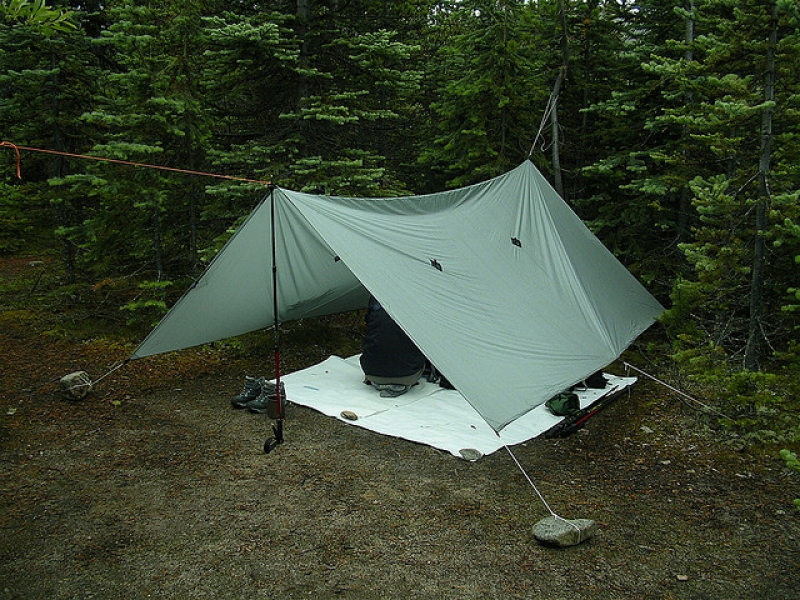
One of the heaviest items in any pack is a tent. When you want to cut back, switch to only a tarp. You can drape it over an A-frame and tie it down with stakes. If those eyelets tear through you can always strap on a line using a “monkey fist.” Just wrap the tarp corner around a small rock and tie that off instead. Then tie the loose end to a stake.
Photo credit: Flickr CC
-
Cook over a fire

Dealing with liquid fuel cook stoves can be a hassle and while propane fueled stoves are great, that’s just one more thing you have to carry. Skip the camp stove altogether and rely solely on the abundant resources around you. Make a fire. But don’t just cook over any fire. By digging a hole and then constructing a small tunnel for air flow, you can have a great backcountry camp stove that works every time.
Photo credit: Rich Wright
-
Make an alcohol stove out of a beer can

We’ve all seen the range of fancy camp stoves on the market. But what you might not realize is that you can create a simple camp stove that burns as hot and efficient as an expensive version you might find at REI with just a beer can. Here is a link to a video on how to make one. It just takes some careful cutting and a steady hand. But be warned, you should only use a small amount of fuel and be careful that you do not tip this over as it can start a fire that spreads quickly.
Photo credit: Flickr CC
-
Baby powder your feet
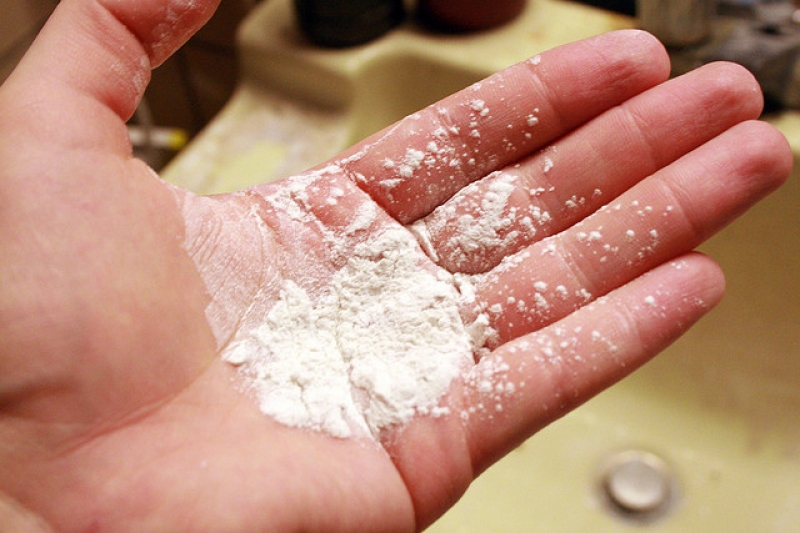
Wet feet are the enemy of every hiker. Bit when you have to cross a stream, sometimes it’s just unavoidable. For a great way to keep your feet dry or to dry them off quicker once they get wet, carry a small amount of baby powder that you can sprinkle right on those little piggies.
Photo credit: Flickr CC
-
Use Altoids containers
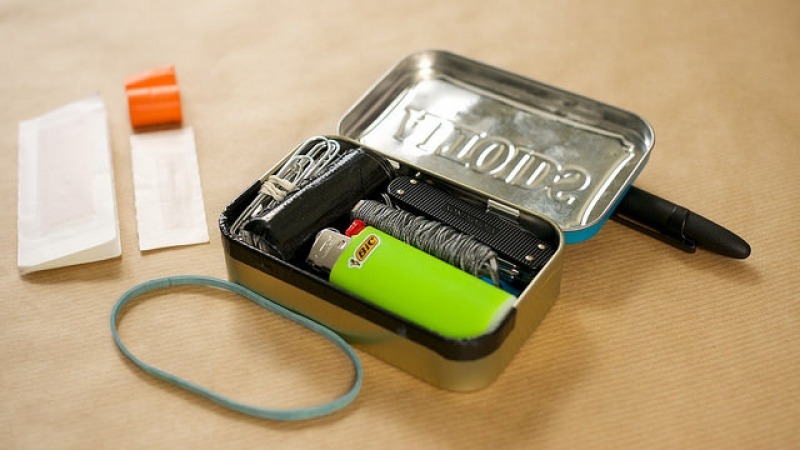
Let’s face it, most of us buy Altoids breath mints not so much for the mint, though they are delicious, but for the ready-made tin that comes with it. These tiny containers can be used to carry anything, but the most popular applications include first aid kits, fire starter and turning them into a makeshift camp light by rolling up cardboard soaked in wax that can then be lit.
Photo credit: Flickr CC
-
Use Tic-Tac containers
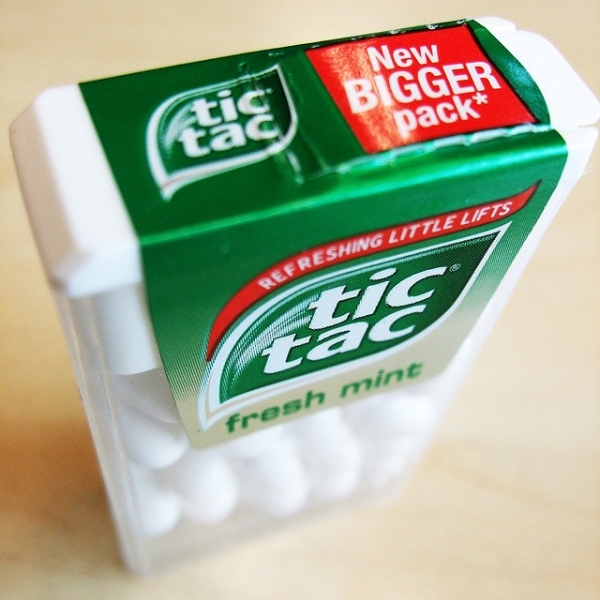
A Tic-Tac container is another great receptacle that can be reused in the backcountry for any number of purposes. You can store fishing lures, spices or sugar for example.
Photo credit: Flickr CC
-
Coffee cans make great TP holders

At hunting camps, wet toilet paper and the infiltration of rats and mice can be an issue. A great way to avoid either of these fates for your coveted TP is to enclose the roll in a plastic Folgers coffee container. You can cut a slit down the side for the paper to scroll out and tie it up with a string from the lid.
Photo credit: Flickr CC
-
Bundle coffee grounds in filters

For many people, they just can’t live without their morning cup of Joe. In the backcountry, coffee can be replaced with tea, instant grounds or even pine needles. But no true coffee drinker can really deal with replacements. For an easy way to have fresh coffee on the go just wrap a tablespoon of grounds in a coffee filter and tie that off with fishing line or a piece of string and dunk it into your cup for instant java.
Lilittas1 | Dreamstime.com - Metal Touristic Tea Cup In Woman Hands Outdoor Photo
-
Crescent rolls on a stick

Who doesn’t like crescent rolls? An easy addition to any meal, you can carry a can of crescent rolls and wrap them around a stick. Hold it over the fire for some quick and easy buttery dinner rolls. Or you can also wrap them around a hotdog and then on the stick for added goodness.
Photo credit: Flickr CC
-
Roast cinnamon rolls in an orange
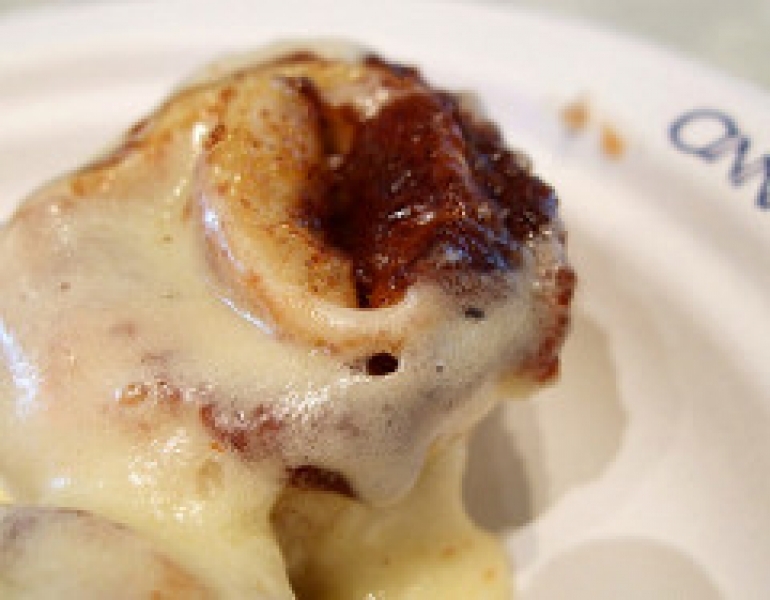
Cinnamon rolls are another pastry that comes in a can. What a great way to start the morning? For an orange flavored Cinnabon and a great way to cook them easily, place the uncooked dough on an orange slice and set that on a hot bed of coals or rock.
Photo credit: Flickr CC
-
Use a belt and hooks to hang things
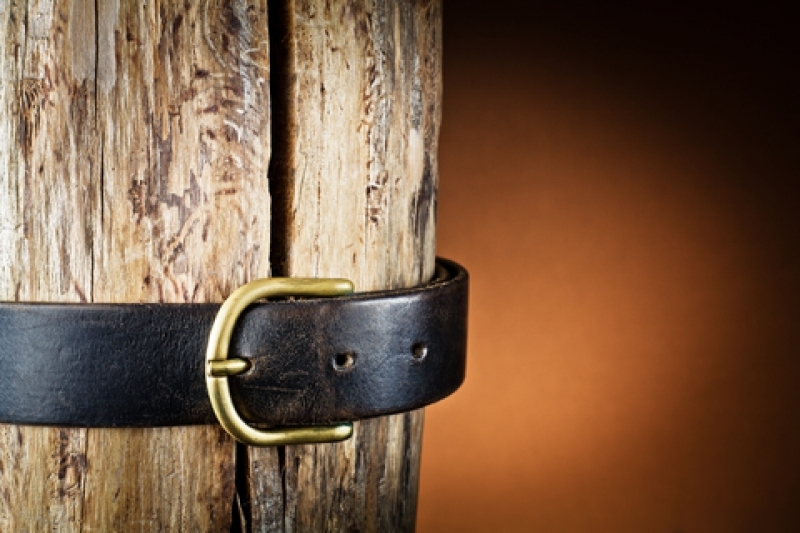
Keeping things organized is an important way for a trip to remain fun rather than frustrating. A great way to organize your things like pots, pans, lights and virtually anything that can hang is by using a belt around a tree. Wrap the belt around the tree and hang simply hang hooks.
-
Burn sage to keep mosquitoes away

Mosquitoes can be a huge nuissance in the woods. Sometimes it’s a good idea to revert to the ancient ways of repelling insects such as sage. Bring along a sprig of sage to throw on the fire to keep those pesky mosquitoes away.
Photo credit: Flickr CC
-
Johnson's baby creamy oil can repel mosquitoes

Keeping mosquitoes off your skin while you’re hiking and away from the fire is another trick altogether. Many people can’t stand the smell of deet and other repellents. And after a day of lathering that it can leave your skin greasy and uncomfortable. A great alternative is Johnson’s Baby Creamy Oil with Aloe & Vitamin E.
Photo credit: Flickr CC
-
Use cotton balls and liquid soap to remove ticks
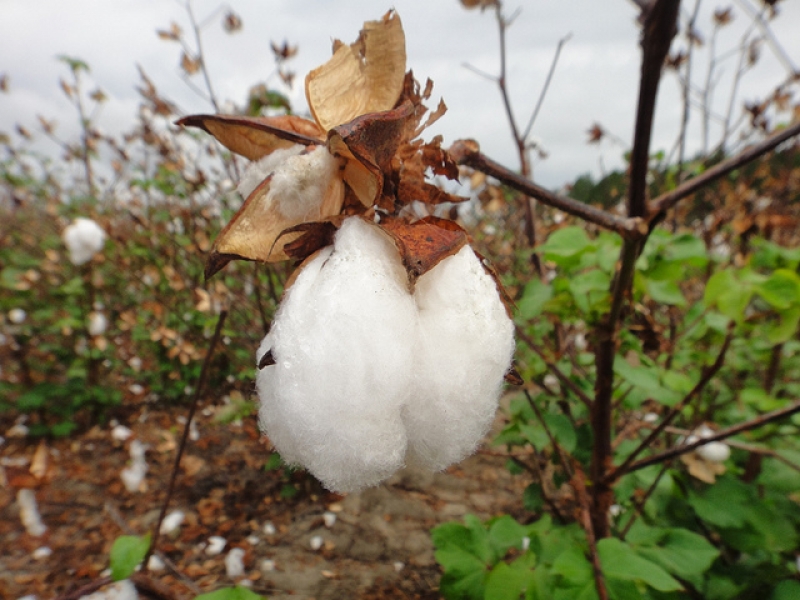
Ticks are one of the worst enemies in the woods. They often carry lyme disease, and if they are not removed within 24 hours that lyme disease can transmit into your blood. It’s always important to check for ticks. But what to do if you find one? Attempting to burn or smoke them out is a bad idea and can lead to the tick burrowing further into your skin. Instead, try soaking cotton balls in liquid dish soap and pressing that to the tick. In a few minutes it should stop chewing and likely back out of its endeavor.
Photo credit: Flickr CC
-
Turn an acorn into a whistle
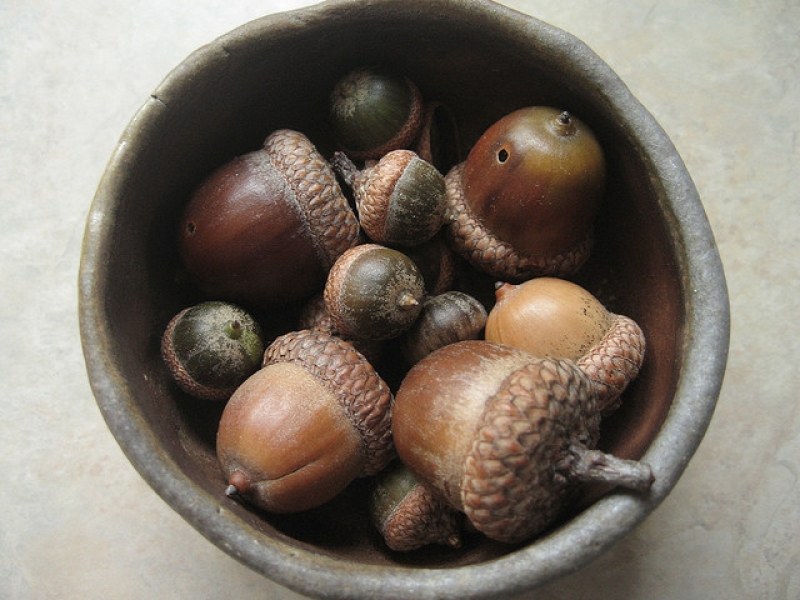
When you’re lost in the woods or trying to dissuade a wild animal from getting any closer, a whistle is a great thing to use. Every hiker should carry one. But let’s say you forgot it, or your pack got washed down river. Not to fret, there are always acorns. It takes some practice, though, so here’s the technical details.
Photo credit: Flickr CC
-
An easy hand-washing station

This one’s more for car camping then backcountry. If you need a way to easily wash your hands and don’t want to waste drinking water, you can use an old laundry detergent jug as a hand washing station. And even if you don’t get all the detergent out, you can still use it to wash your hands. Fasten a roll of paper towels to the top to complete the deal.
Photo credit: Flickr CC
-
Make a lantern out of a water jug

To make a quick lantern, stick a head lamp or glow stick into a plastic water bottle. This you can hang like a lantern for general ambient light that ends up being broader than what the light by itself could provide.
Photo credit: Flickr CC
-
Put duct tape around your water bottle
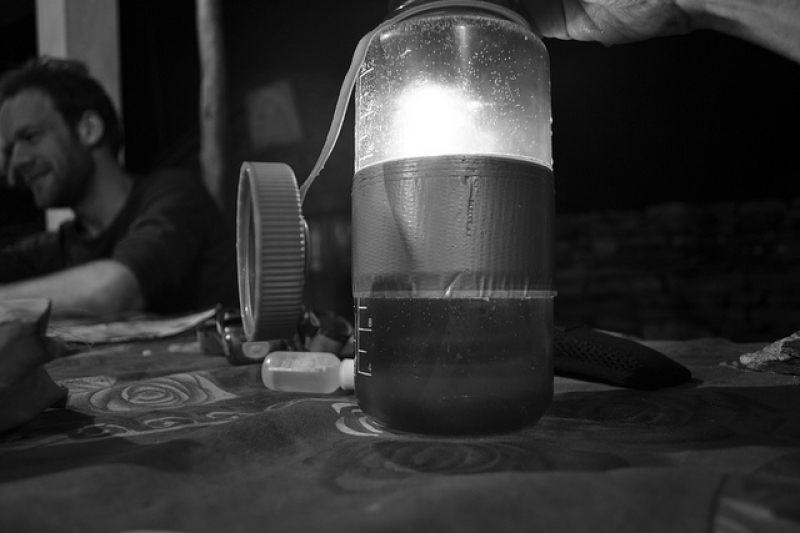
There is nothing in the world that duct tape won’t fix. That’s why it’s always a good idea to carry a roll with you. But where to store it? You have a ready-made duct tape storage device in any water bottle. Just wrap that sucker up.
Photo credit: Flickr CC
-
Bucket, milk crate and toilet seat
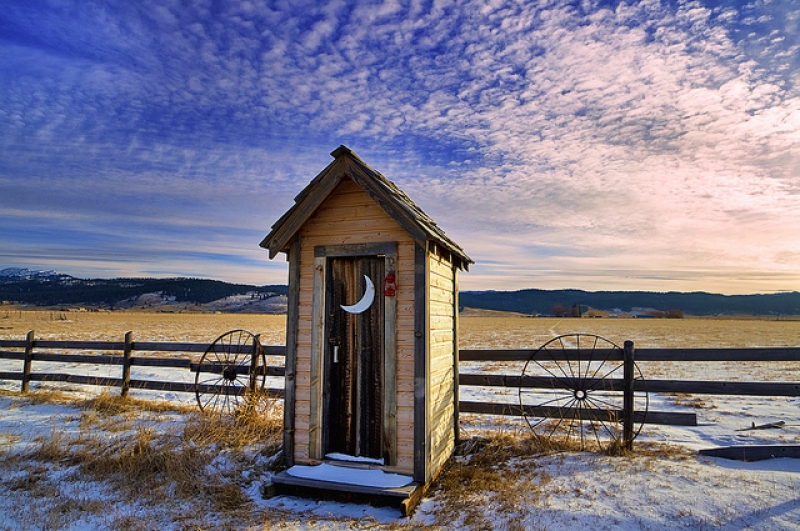
Another one for the hunting camp or rugged car camping scenario, you can create a makeshift outhouse with a bucket, milk crate and toilet seat. Just cut hole in the bottom of the crate, place it over the bucket and put the toilet seat over that. Then sit and enjoy.
Photo credit: Flickr CC
-
Carry a wok

Cooking gear is another heavy item that you can likely do without. For an all-in-one utensil try carrying a Chinese cooking wok. This is a great item you can use to sauté, boil water, wash clothes, pan for gold or even wear it as a hat.
Photo credit: Flickr CC
